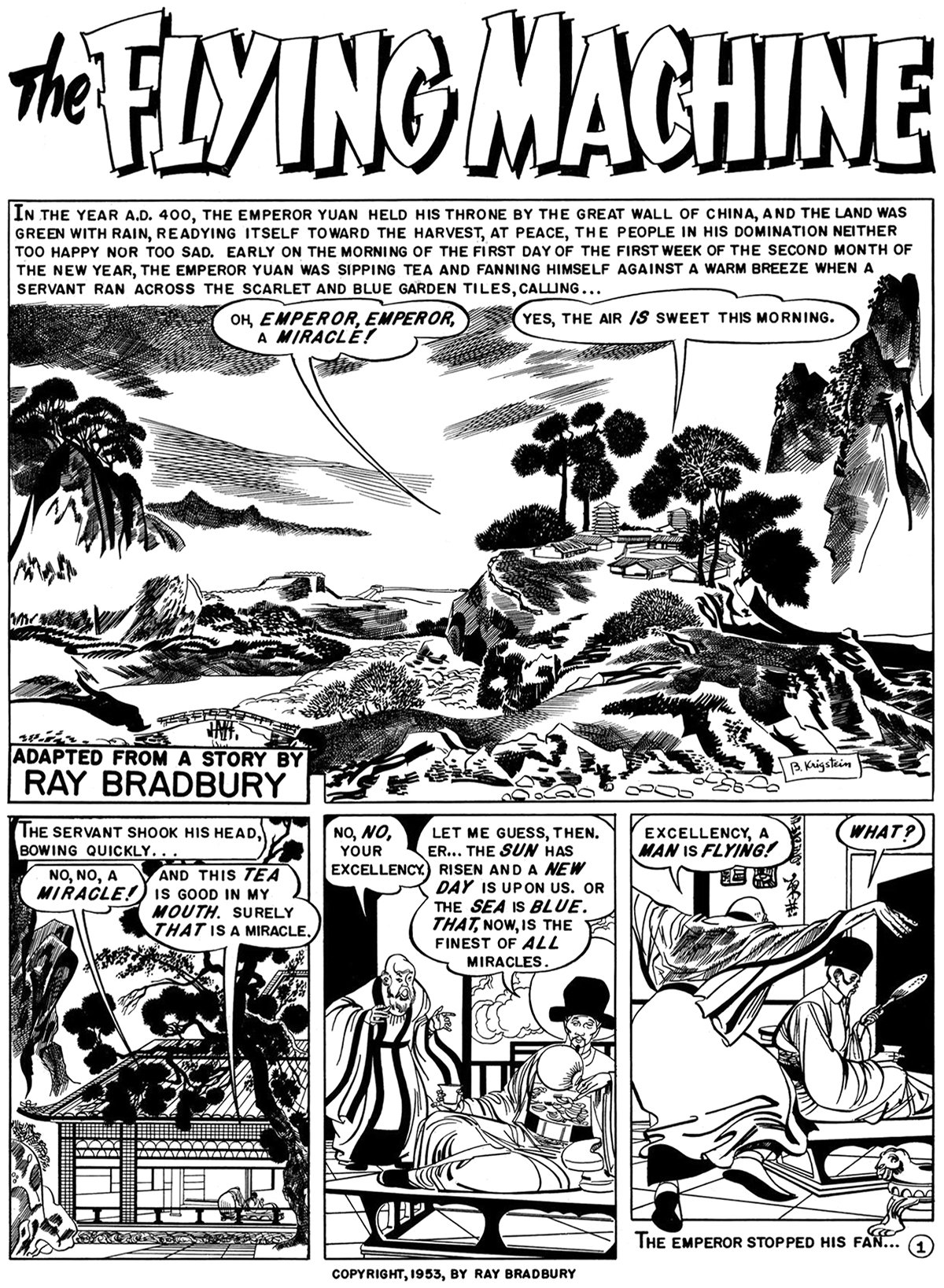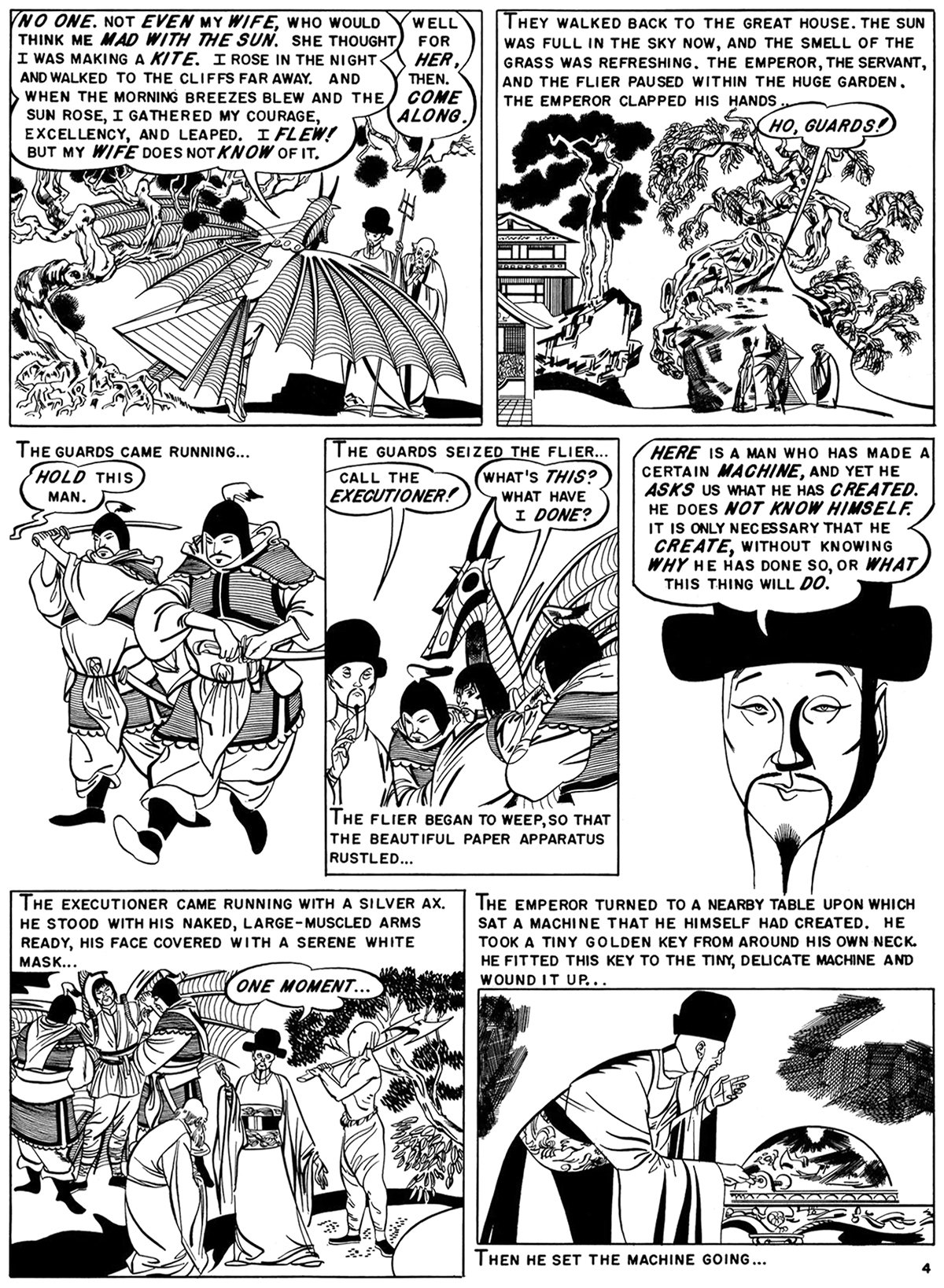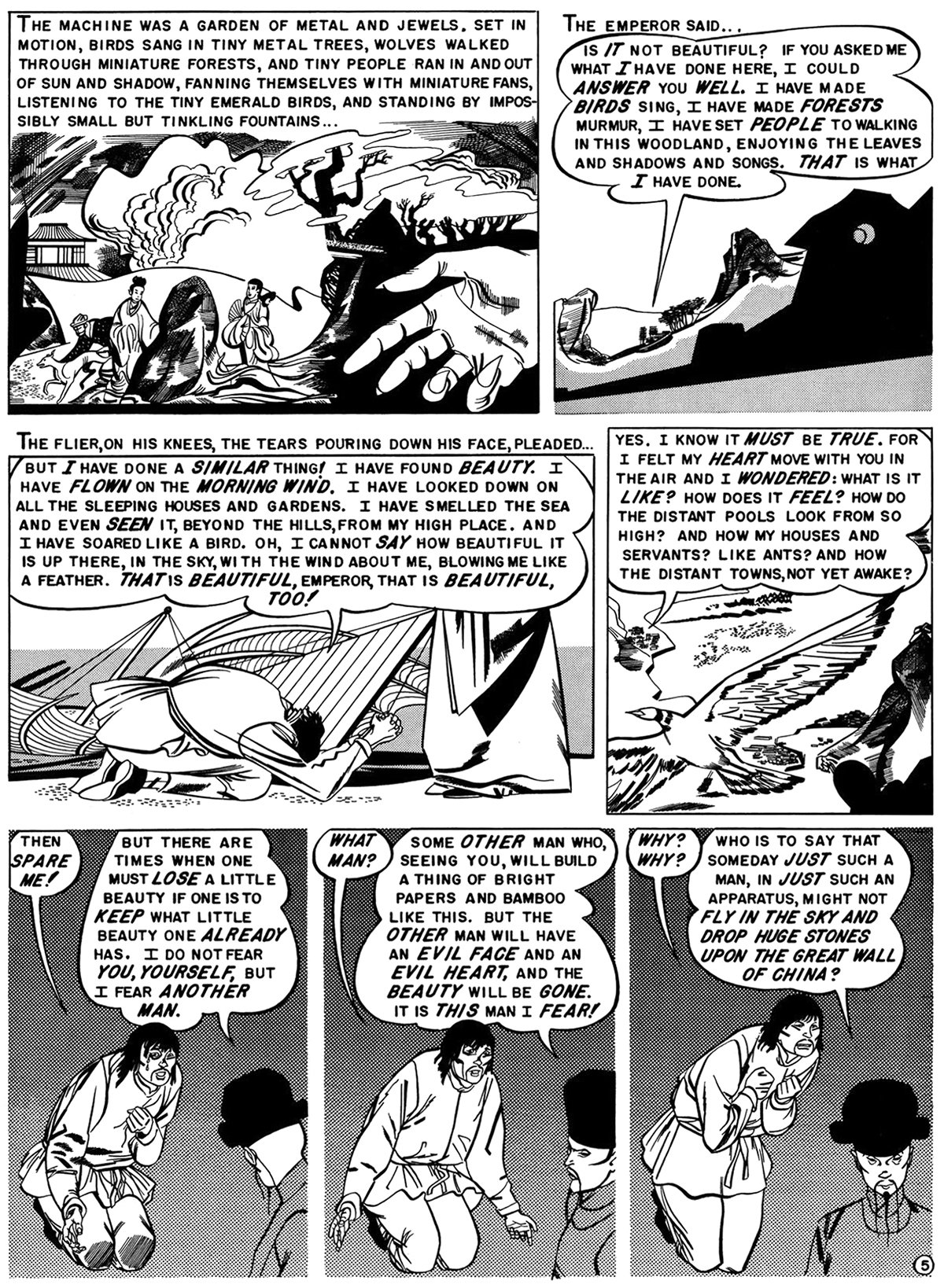The Flying Machine by Ray Bradbury
With great power comes great responsibility. This is the major theme of Ray Bradbury’s short story The Flying Machine from 1953. It was adapted into a comic in 1954 by Al Feldstein, and the full piece is pictured here. It tells the story of a meeting between an emperor and an inventor who has built a flying machine. The inventor is an optimist who experiences the full delights of flying, while the emperor is a pessimist who fears the technology will fall into the wrong hands. It’s a theme that runs much deeper than human flight, but Bradbury’s choice to feature the flying machine demonstrates the power of flight for humanity.
The story is rather simple. An emperor is made aware of a man who’s invented a flying machine. He meets the man and they have a conversation about the machine. The emperor learns that the inventor is the only person who’s aware of the flying machine, so the emperor has the inventor killed so the technology won’t fall into evil hands.
Bradbury is exploring the idea that every new technology brings with it new risks. Sure, humans can now fly, but at what cost? Will humans use this new ability for good or for evil? For a bit more detail, here’s the main conversation between the inventor and the emperor:
The inventor, right after the emperor orders him to be killed: I have found beauty. I have flown on the morning wind. I have looked down on all the sleeping houses and gardens. I have smelled the sea and even seen it, beyond the hills, from my high place. And I have soared, like a bird. Oh, I cannot say how beautiful it is up there, in the sky, with the wind about me, blowing me like a feather. That is beautiful, emperor, that is beautiful, too!
The emperor: Yes, I know it must be true. For I felt my heart move with you in the air and I wondered: what is it like? How does it feel? How do the distant pools look from so high? And how my houses and servants? Like ants? And how the distant towns, not yet awake? But there are times when one must lose a little beauty if one is to keep what little beauty one already has. I do not fear you, yourself, but I fear another man. Some other man who, seeing you, will build a thing of bright papers and bamboo like this. But the other man will have an evil face and an evil heart, and the beauty will be gone. It is this man I fear!
The Flying Machine is a cautionary tale about the inherent risks that come with new technology, and it’s theme is rooted in verticality. This illustrates the power of flight for humanity; Bradbury could’ve chosen any type of technology, but he chose flight because of the primal human need for verticality. We can all identify with the emperor when he says I felt my heart move with you in the air, because we’ve all fantasized about flying in some way.
Check out other posts about literary sources that deal with verticality here.
Comic originally published in “The Flying Machine.” Weird Science-Fantasy 23. EC Comics, March 1954.






